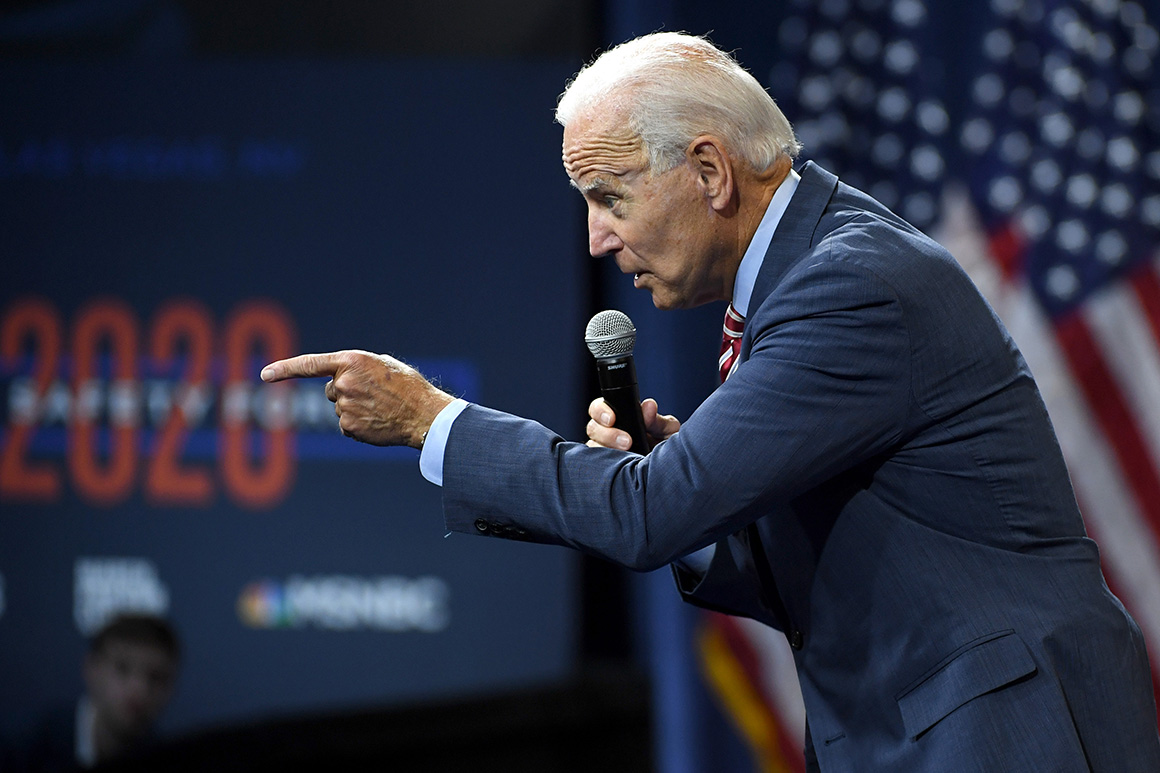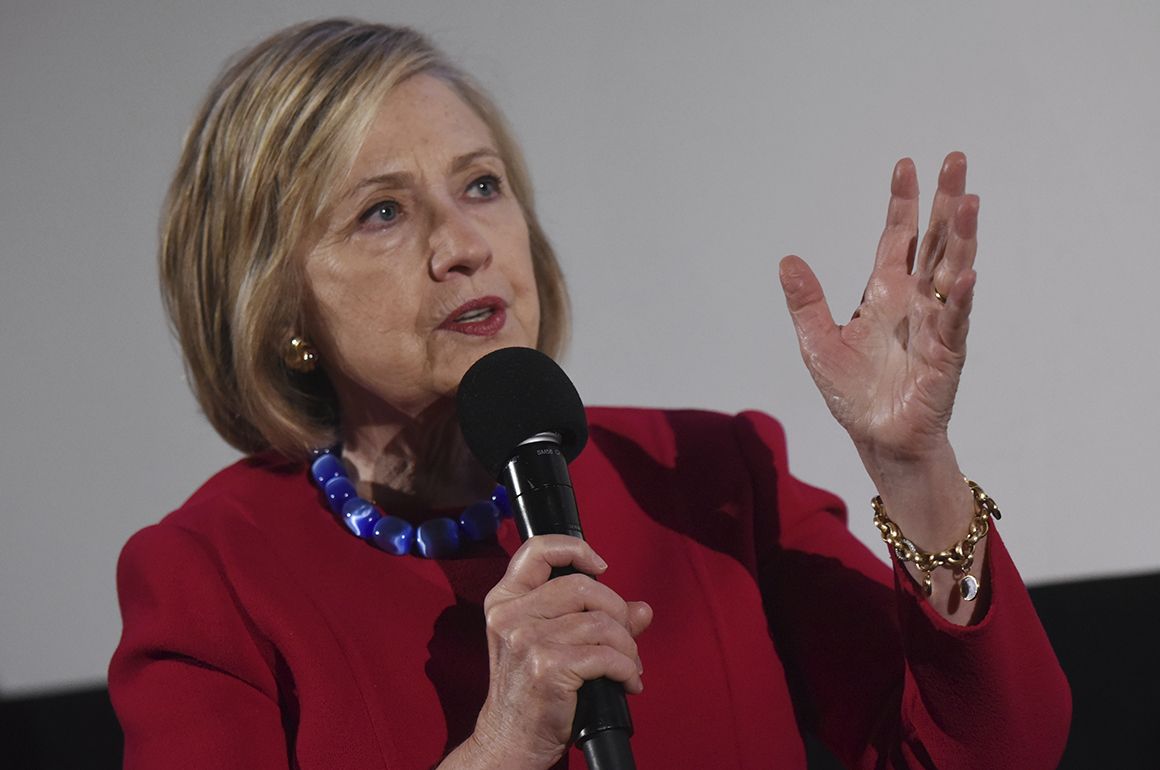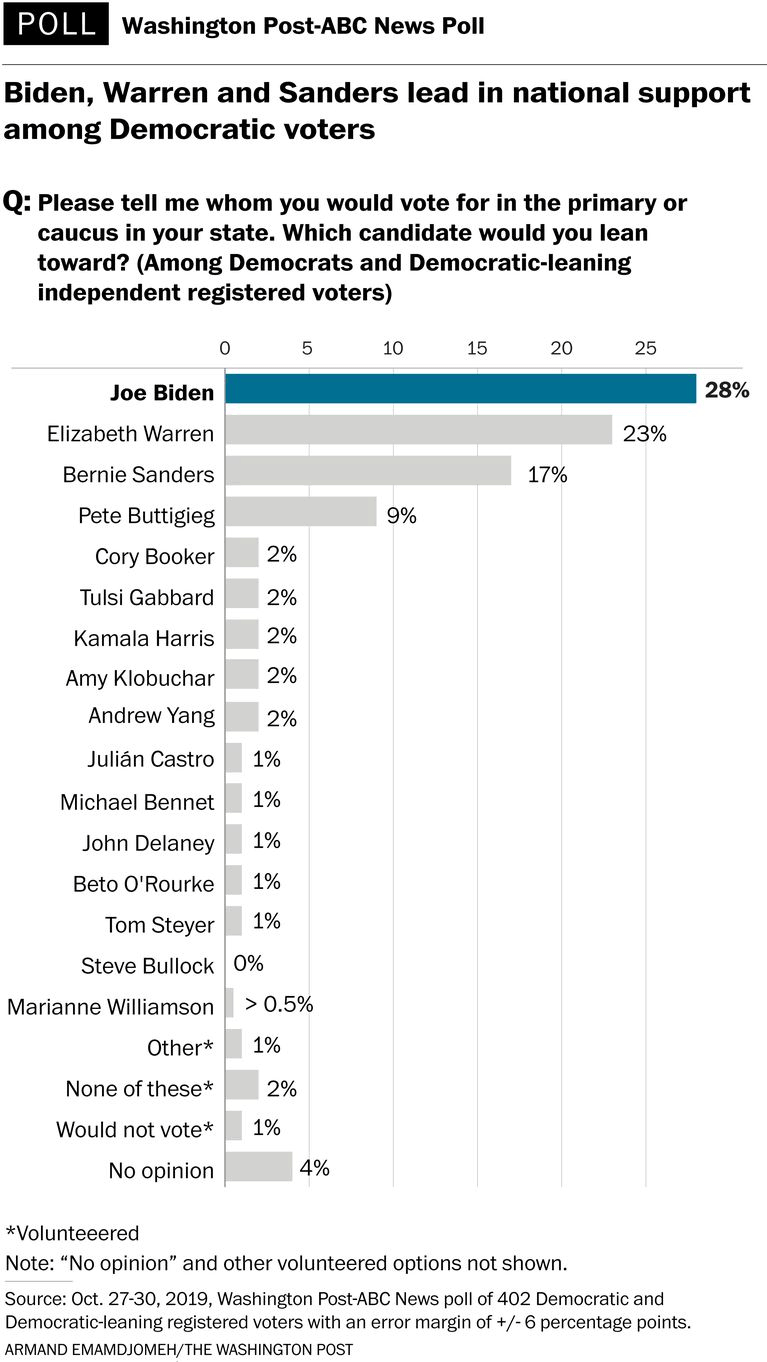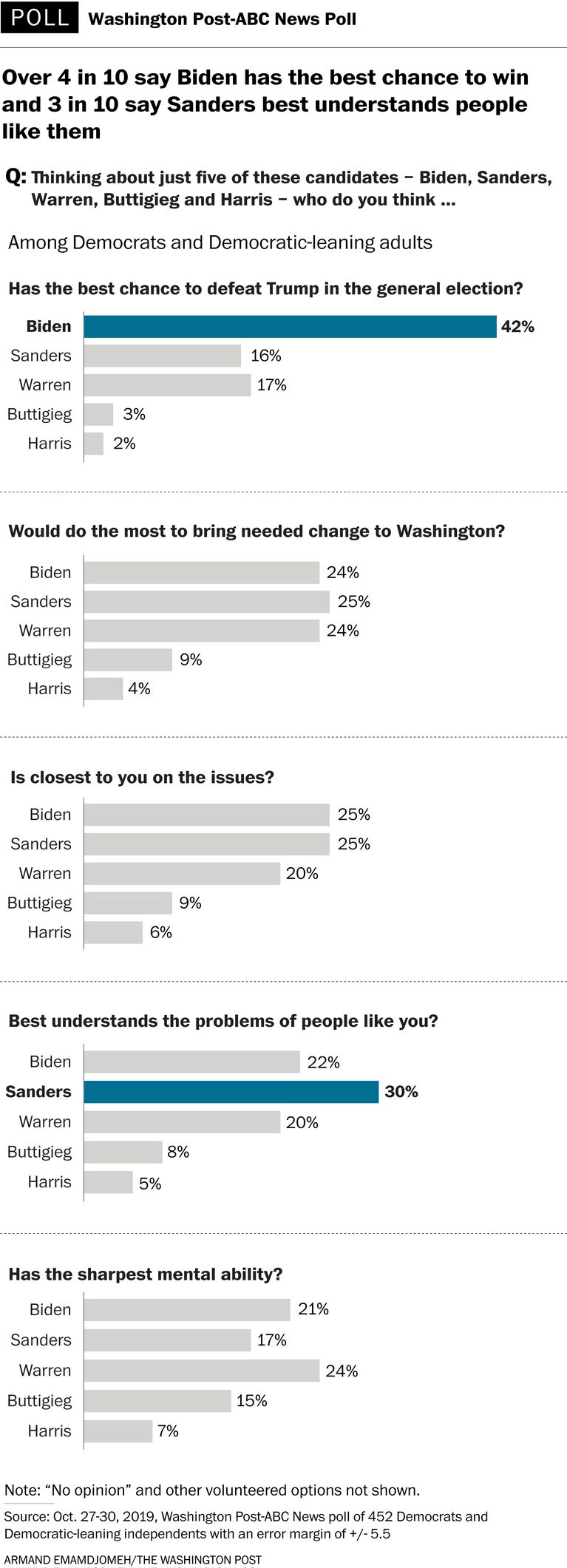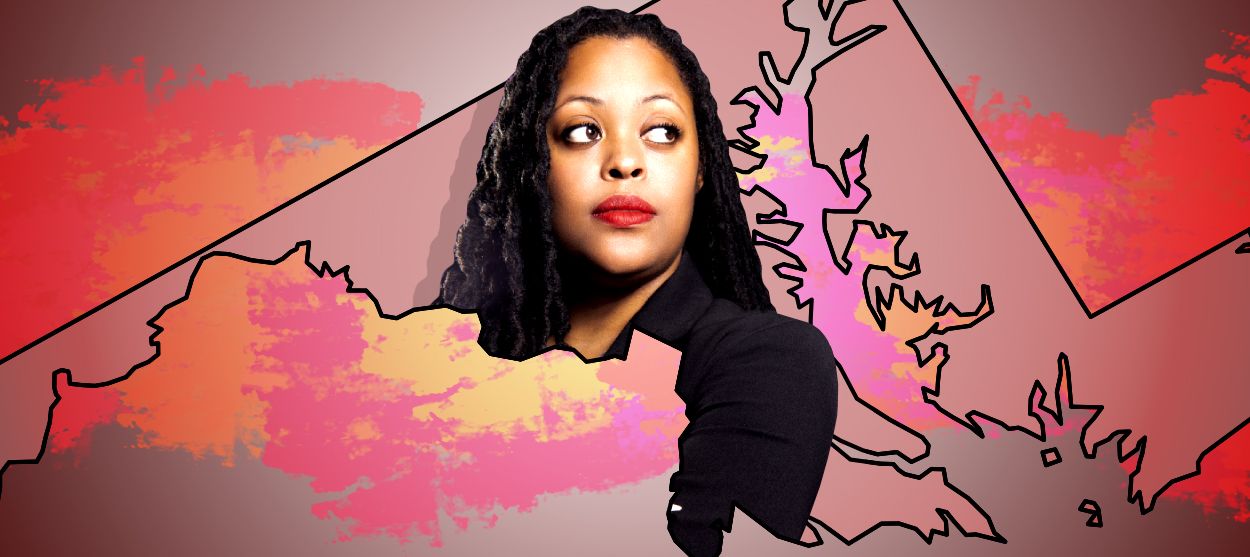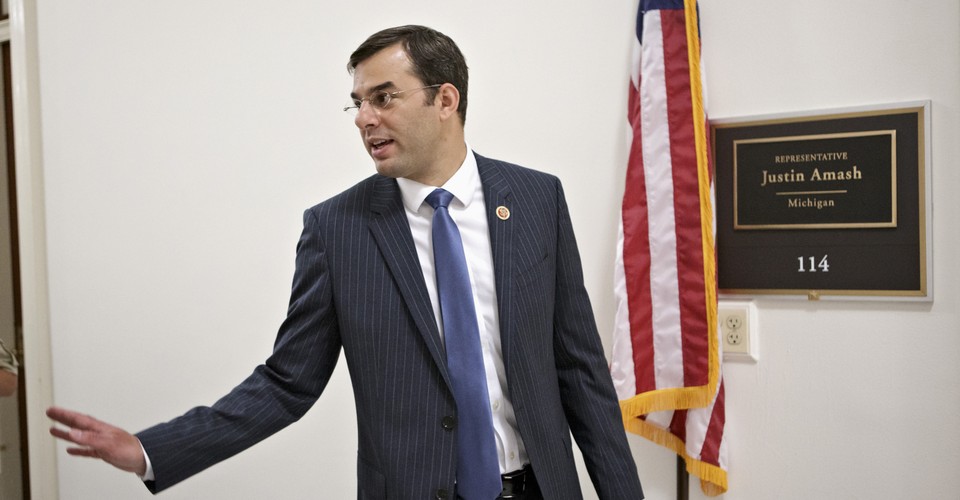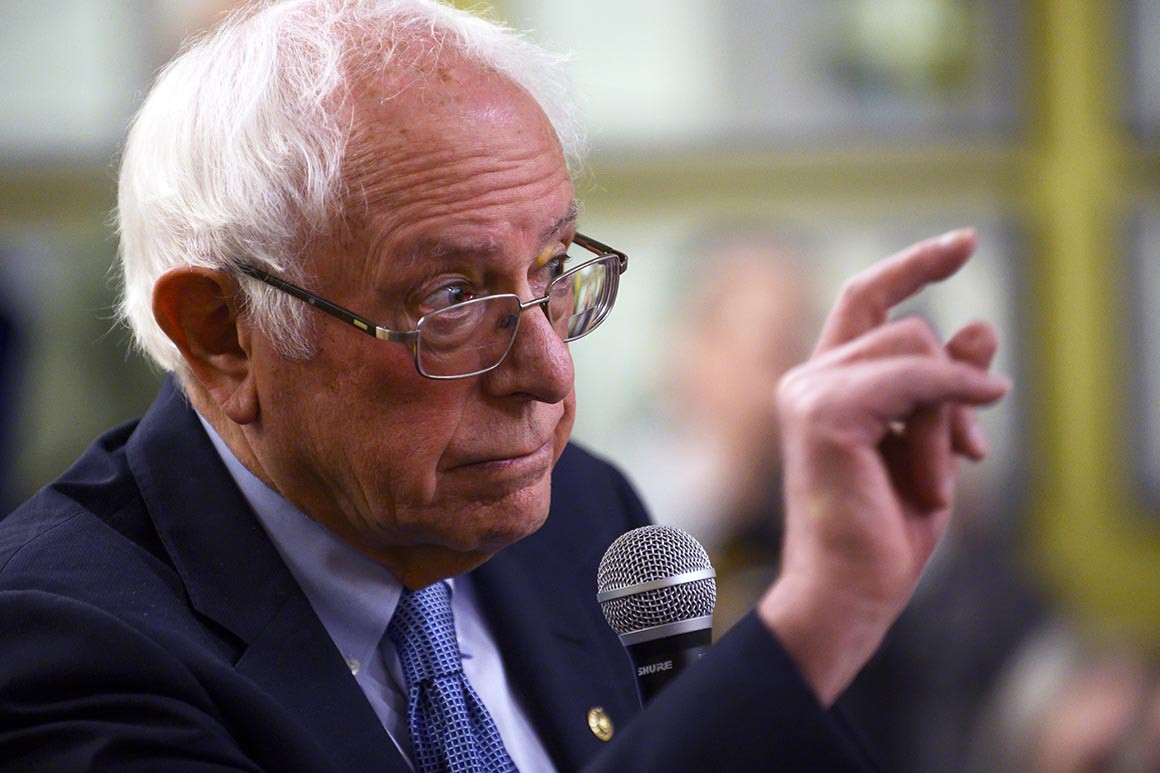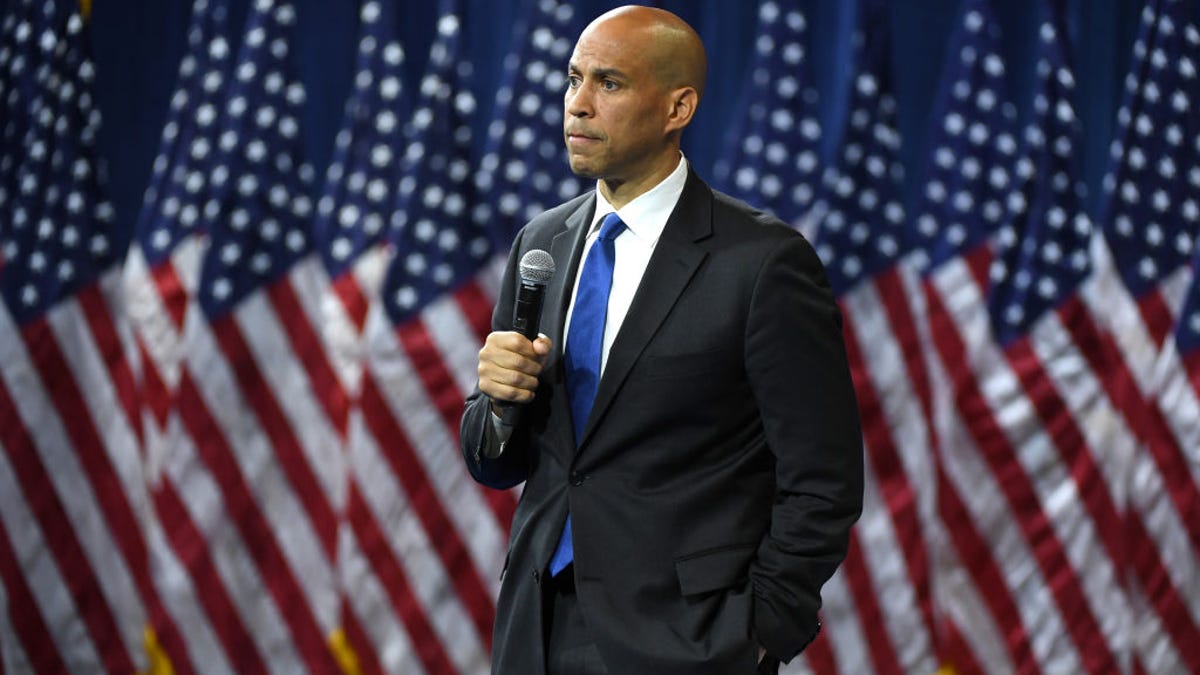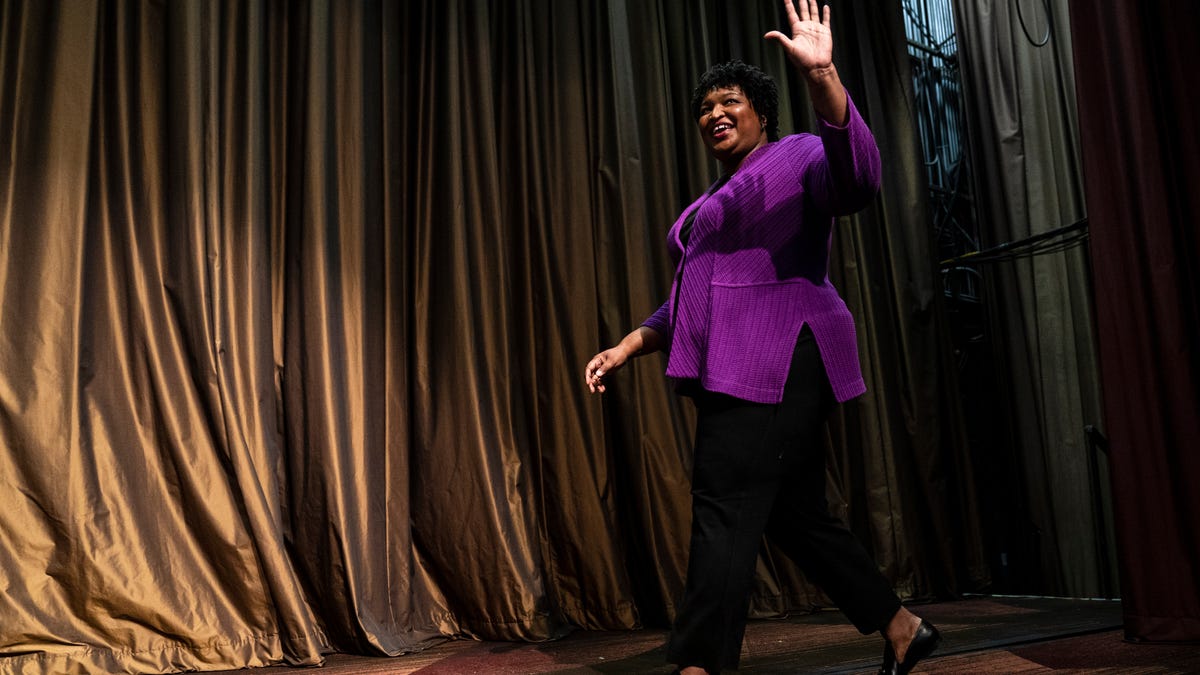Politics
As Warren and Buttigieg rise, the Democratic presidential race is competitive and fluid, a Washington Post-ABC News poll finds
Washington Post
By
Scott Clement
and
Dan Balz
November 2, 2019
The race for the Democratic presidential nomination is both competitive and fluid less than 100 days before the Iowa caucuses, with a stable trio of leading candidates and a fourth — Pete Buttigieg, the mayor of South Bend, Ind. — now rising above a dozen others in the low single-digits, according to a
Washington Post-ABC News poll.
Democrats see former vice president Joe Biden as the strongest leader among the top candidates and also say he has the best chance of defeating President Trump. But he holds no advantage on five other attributes, including policy issues, bringing needed change and being mentally sharp. He remains atop the field, with Sens. Elizabeth Warren (D-Mass.) and Bernie Sanders (I-Vt.) trailing, Warren within the margin of error.
Meanwhile, the poll finds significant concerns about Sanders’s fitness in the wake of his heart attack last month, with more than 4 in 10 Democrats saying he is not in good enough health to serve as president.
A majority of Democrats say they have not firmly made up their minds on whom to support, with about 1 in 10 having no current preference and about half of Democrats who do support someone saying they would consider supporting another candidate. That has added an air of uncertainty over a race that to this point has been somewhat stable.
Among Democratic-leaning registered voters, 28 percent would support Biden if their state’s primary or caucus were held today, while 23 percent support Warren and 17 percent support Sanders. Biden’s edge over Warren is smaller than the poll’s margin of sampling error. Buttigieg stands at 9 percent and is the only other candidate with greater than 2 percent support.
Warren’s support has nearly doubled from 12 percent in
July and is up from 18 percent in
September. Support for Biden and Sanders has moved less than two points over that period. Buttigieg has gained five points since early September, a signal his national stature may be catching up to his standing in Iowa, where polls have found him rising and with double-digit support.
In Iowa, whose caucuses mark the first contest of 2020, Buttigieg garnered 18 percent in
a New York Times Upshot/Siena College polllast week, within range of Warren’s 22 percent and on par with Biden and Sanders. In New Hampshire, whose primary comes eight days after Iowa, polls show Warren, Biden and Sanders are competitive with one another, while Buttigieg stands about 10 percentage points behind.
The Post-ABC News poll asked Democrats to choose which of five top-ranking candidates is best across seven personal and policy attributes. Biden continues to lead on the question of electability, with 42 percent saying he has the best chance to defeat Trump, compared with 17 percent who say the same for Warren, 16 percent for Sanders, 3 percent for Buttigieg and 2 percent for Sen. Kamala D. Harris (D-Calif.). Biden is seen as the strongest leader by 35 percent of Democrats, compared with 20 percent who say this of Sanders and 19 percent for Warren.
But Biden was matched or exceeded by Warren or Sanders on other attributes. Asked which candidate “best understands the problems of people like you,” Sanders led with 30 percent, compared with 22 percent for Biden and 20 percent for Warren. The three candidates are about even when it comes to who would do most to bring needed change in Washington, and Biden and Sanders tied at 25 percent on which candidate is closest to them on the issues. On honesty, Biden and Sanders are roughly even at 26 percent and 27 percent, respectively, while 16 percent say Warren is most honest.
On the question of which of five leading Democrats “has the sharpest mental ability,” Biden was mentioned by 21 percent, falling narrowly between Warren at 24 percent and Sanders at 17 percent. Buttigieg was named by 15 percent as the most mentally sharp candidate, while 7 percent mentioned Harris.
The poll suggests Sanders’s recent heart attack may have raised concerns among Democrats about his ability to serve as president. Democrats were almost evenly split on whether Sanders is healthy enough to serve as president, with 48 percent saying he is in good enough health and 45 percent saying he is not.
The stability in Sanders’s overall support, however, suggests these concerns have not taken a toll on his national support for the nomination.
Meanwhile, an 80 percent majority of Democrats and Democratic-leaning independents say Warren is healthy enough to serve, as do 74 percent who say this of Biden.
Among those who say they will definitely support their current preference if that candidate remains in the race, Biden fares best, with 34 percent support among these voters, compared with 21 percent for Sanders and 19 percent for Warren.
Among those who say they might switch to support a different candidate, 30 percent currently prefer Warren while 26 percent back Biden and 16 percent prefer Sanders. Buttigieg gets 14 percent support among on-the-fence voters.
Democrats’ second-choice preferences underscore the fluidity of the race, but also the advantage of the leading three candidates over the rest of the field. About 4 in 10 Democrats say Warren is their first or second choice for the nomination (41 percent), roughly matching Biden at 40 percent and slightly higher than Sanders at 34 percent. Buttigieg stands further back at 16 percent when first and second choices are combined.
Harris’s support has continued to fall from a peak of 13 percent in the July poll, which came after a strong performance in the first presidential debate, to 7 percent in September and 2 percent in the latest poll. But the survey suggests Harris has the potential to regain at least some of her earlier supporters in the coming months, with 9 percent of Democratic-leaning voters saying she is their second choice for the nomination.
Sen. Amy Klobuchar (D-Minn.) also fares relatively well on this question, with 4 percent saying she is their second-choice candidate in addition to 2 percent who currently support her.
Age continues to be a principal divider in Democrats’ support for the nomination, continuing a cleavage that marked the party’s primaries in 2016 and 2008. Biden holds a wide lead among Democratic-leaning voters ages 50 and older, attracting 38 percent support compared with 21 percent for Warren, 10 percent for Buttigieg and 9 percent for Sanders. But Biden receives a much smaller 17 percent among Democrats under age 50, with Sanders and Warren tied at 25 percent.
Democrats also split by their self-ascribed ideology, with Biden leading Warren and Sanders by roughly 20 points among Democrats who are moderate-to-conservative, while Warren has the edge among liberals with 33 percent support to Sanders’s 22 percent and Biden’s 18 percent
Race marks a third key fault line. White Democrats are splintered, with 25 percent apiece supporting Biden and Warren, followed by Sanders and Buttigieg at 14 percent each. Among nonwhites, Biden leads with 31 percent support, with Warren and Sanders each receiving 20 percent and Buttigieg falling to 2 percent.
Biden draws roughly similar support among men and women, with 29 percent of men and 27 percent of women citing him as their favored candidate. Warren and Sanders are mirror images of each other. Warren has the support of 26 percent of Democrats and Democratic-leaning women but a smaller 16 percent among men. Sanders gets 25 percent support among men but 11 percent among women.
The
Post-ABC poll was conducted by telephone Oct. 27-30 among a random national sample of U.S. adults reached on cellphones and landlines. The margin of sampling error is plus or minus 5.5 percentage points among the sample of 452 Democrats and Democratic-leaning independent adults, and is plus or minus six points among the sample of 402 Democratic-leaning registered voters.
Emily Guskin contributed to this report.


